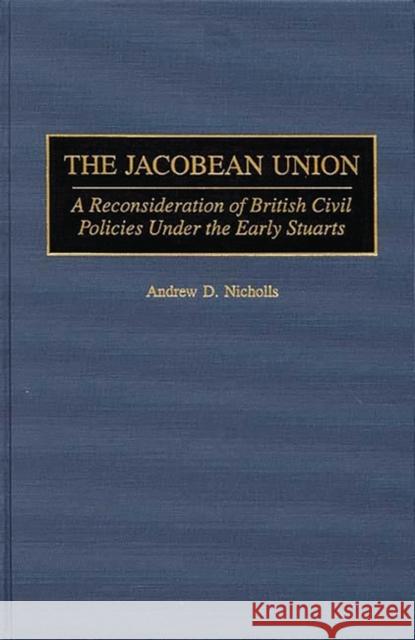The Jacobean Union: A Reconsideration of British Civil Policies Under the Early Stuarts » książka
The Jacobean Union: A Reconsideration of British Civil Policies Under the Early Stuarts
ISBN-13: 9780313308352 / Angielski / Twarda / 1999 / 224 str.
The Jacobean Union: A Reconsideration of British Civil Policies Under the Early Stuarts
ISBN-13: 9780313308352 / Angielski / Twarda / 1999 / 224 str.
(netto: 340,20 VAT: 5%)
Najniższa cena z 30 dni: 355,74
ok. 30 dni roboczych
Dostawa w 2026 r.
Darmowa dostawa!
In arguing that the early Stuarts maintained a consistent yet uncomplicated policy of encouraging cooperation among their subjects, this work offers a new perspective on the role of multiple monarchy in the early modern British kingdoms. It has been generally accepted that James VI (James I of Britain) abandoned most efforts aimed at British unity following the failed Anglo-Scottish union negotiations of 1604-1607. This study asserts that James' desire for British unity and inter-kingdom cooperation should not be assessed within the context of that aborted political effort but, instead, should be analyzed as a long-term project. Union designs predated his ascension to the English throne by some twenty years and continued up to his death in 1625. James was mindful of the possibilities for cooperation which were inherent in inter-kingdom defense policies, trade practices, colonial projects, and foreign policy. Many of the assumptions that caused James to project encompassing policies were continued by Charles I, an unstudied element of British continuity between the two reigns. Ultimately, failure to emphasize the need for British unity in relation to a variety of civil policies would be an important factor in the fall of the Stuart monarchy during the British civil wars of the 1640s.











